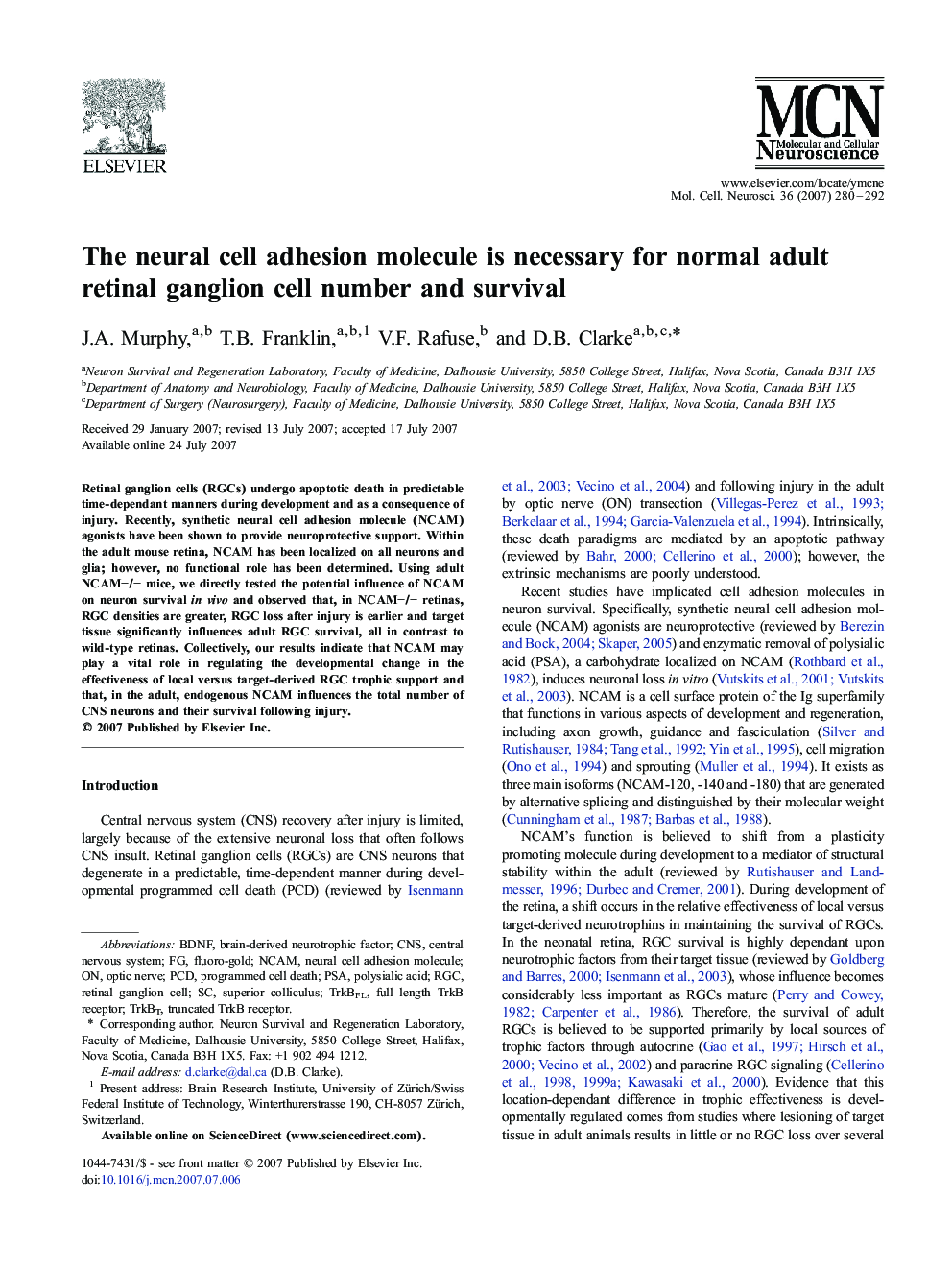| Article ID | Journal | Published Year | Pages | File Type |
|---|---|---|---|---|
| 2199213 | Molecular and Cellular Neuroscience | 2007 | 13 Pages |
Retinal ganglion cells (RGCs) undergo apoptotic death in predictable time-dependant manners during development and as a consequence of injury. Recently, synthetic neural cell adhesion molecule (NCAM) agonists have been shown to provide neuroprotective support. Within the adult mouse retina, NCAM has been localized on all neurons and glia; however, no functional role has been determined. Using adult NCAM−/− mice, we directly tested the potential influence of NCAM on neuron survival in vivo and observed that, in NCAM−/− retinas, RGC densities are greater, RGC loss after injury is earlier and target tissue significantly influences adult RGC survival, all in contrast to wild-type retinas. Collectively, our results indicate that NCAM may play a vital role in regulating the developmental change in the effectiveness of local versus target-derived RGC trophic support and that, in the adult, endogenous NCAM influences the total number of CNS neurons and their survival following injury.
